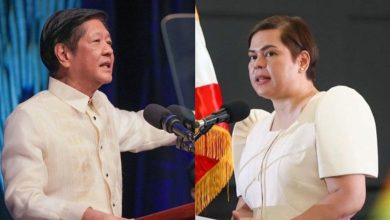Overseas Filipinos in the UAE state that the seemingly unapproachable and unkind behavior of personnel at the Bureau of Immigration (BoI), as well as the problems with offloading are among the top concerns that they wish the new chief to address.
As of September 12, President Bongbong Marcos has appointed BoI’s tenured official, Norman Garcera Tansingco, as the new commissioner of the agency.
In a straw poll conducted by The Filipino Times, the majority of OFWs hope that concerns such as offloading, red tape, human trafficking, and the behavior of Immigration personnel be tackled extensively by the new administration.
‘Immigration horrors’
For years, OFWs planning to bring their family and/or relatives in the UAE have been complaining about the risks of being offloaded, despite procuring and preparing all necessary documents that their relative needed.
Shyryl Moster, an OFW for nearly 20 years in Abu Dhabi, said that she spent nearly Php40,000 for her cousin to visit her in the UAE. However, her cousin only got offloaded in what she terms an ‘immigration horror story’ – as the officer suspected that her cousin might have used the visit visa as a ruse to find a job in the country.
“I sponsored my cousin going here to UAE on a Visit Visa. Pag dating sa Immigration, hindi pinasakay ang pinsan ko kasi baka daw magwork dito. Lahat ng nagastos ko, almost 40k nauwi sa wala dahil non-refundable lahat. Hindi nyo trabaho ang mag offload ng pasaherong legal ang papel at dumaan sa legal na proseso dahil sana sa embassy pa lang pinagbawal na. Habang kausap ko ung pinsan ko sa airport – narinig ko sa backgroud mga immigration officer na i pa block daw ako! Ano ako kriminal?” said Moster.
Offloading at the Immigration makes Filipino travelvers spend more especially if they must rebook their tickets, or worse, if they have to book a new flight altogether.
“Malaki din ang gastos lalo pa ang ibang ticket non rebookable,” said Aleth Torres.
Some netizens even went so far as to allege corruption within the said agency.
“Madami diyan gusto pagka-perahan nila ung mga lalabas ng pinas especially mga tourist visa. Kahit super kumpleto na ang mga documents at ang laki ng gastos bago mo makumpleto mga kelangan mo. Tapos ma-uuwi lang sa OFFLOAD. Kaawa awa mga nabibiktima nila. Ito ang dapat talagang tutukan ng gobyerno,” said Lorna Gordora.
However, the process of interrogation among immigration officers is a must – seeing that some travelers tend to use the visit or tourist visa for purposes other than travel.
The other side of the horror story comes from dozens of repatriated Filipino workers through the years – who said that they got past the immigration counters only to land in the hands of abusive employers overseas.
Official numbers from Statista point out that as of 2020, there are at least 4,302 documented cases of maltreatment against overseas Filipino workers in the Middle East alone – with fears that thousands more have been undocumented. In effect, the Philippine government had been repatriating Filipinos back home to the country in special chartered flights – so much so that Department of Migrant Workers even launched a dedicated ‘One Repatriation Command Center’ to handle this task.
Strict Screenings
One of the hopes among OFWs for the new Immigration chief is to also remind officers to be more friendly and approachable to their fellow Filipinos. Over the years, Filipinos planning to travel overseas dread the possible risk of facing officers who can get quite intimidating as they way they question is to determine if the person really intends to travel – or might have other reasons for doing so.
Adrian Tabique said that those welcoming back OFWs are pleasant, but those at the frontlines for Filipinos travelling abroad tend to grill with repetitive questions to catch if your statements wouldn’t match.
“Ok ang mga pauli. (pauwi) Pero pag pagaws (paalis) ka mga sungit kaayo (masyado) officer pilde (parang) pang maestra sa kinder,” said Tabique.
This level of strictness among Immigration Officers could be traced to the travel risks that some Filipinos might be facing – such as illegal recruitment, third-country recruitment, and other human trafficking concerns.
And for good measure as well – in July 2021, four Filipina women were nabbed at the Ninoy Aquino International Airport for traveling on an Albanian visa but were actually headed for Dubai to work illegally. The women said that their employers paid at least Php200,000 for their visa and work requirements.
Cases like this involve what is known as a “third country recruitment”, wherein victims state that they are headed to one country and while they do land at the airport of that country, they are deployed to yet another country. Authorities state that, victims are made to accept conditions that are otherwise not acceptable just to be deployed for work.
The women were later endorsed to the Inter-Agency Council Against Trafficking (IACAT) for further investigation and filing of charges against their recruiters.




